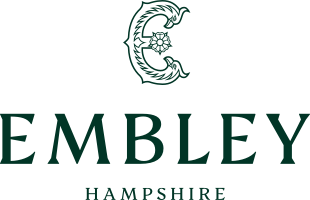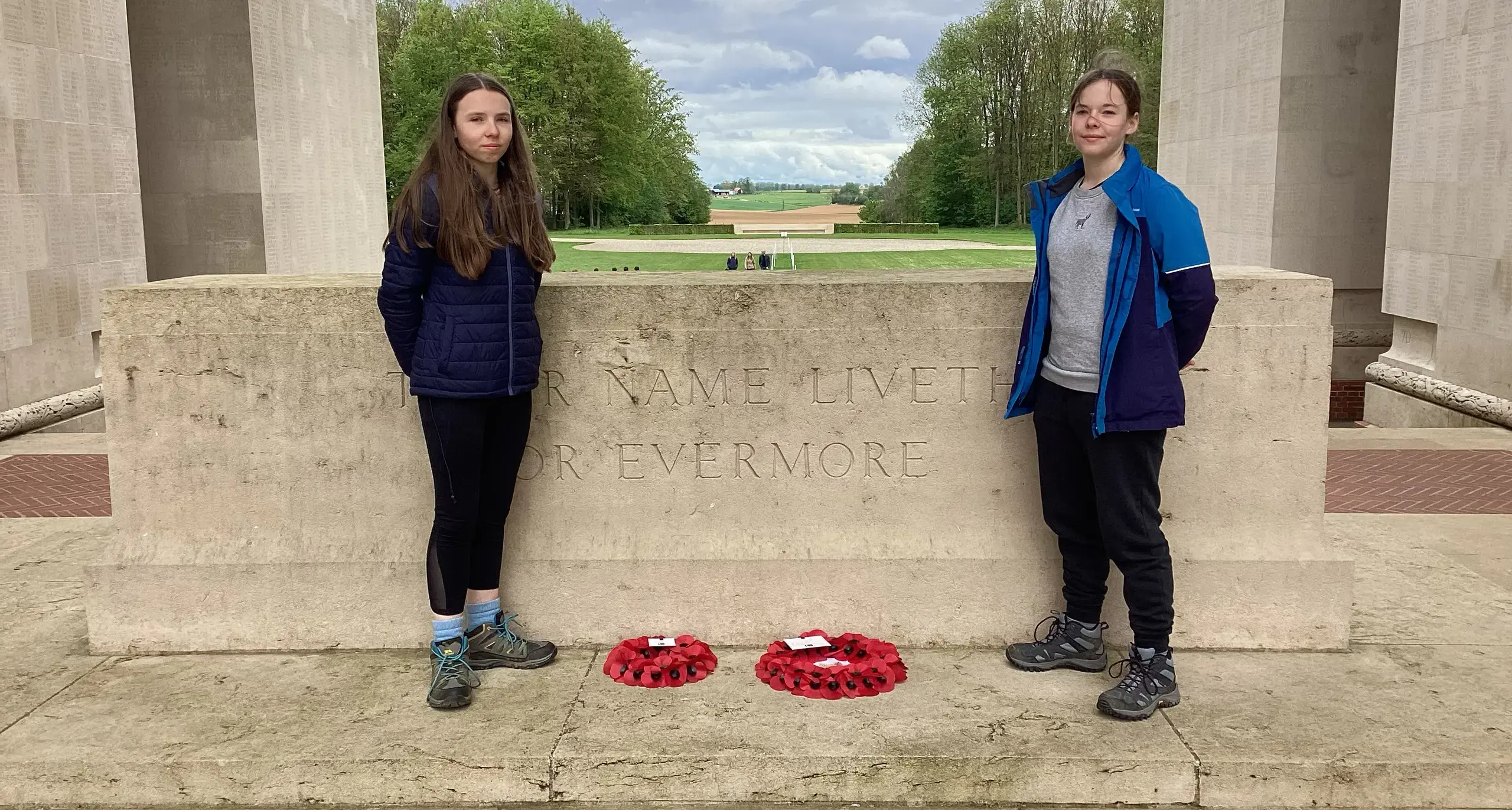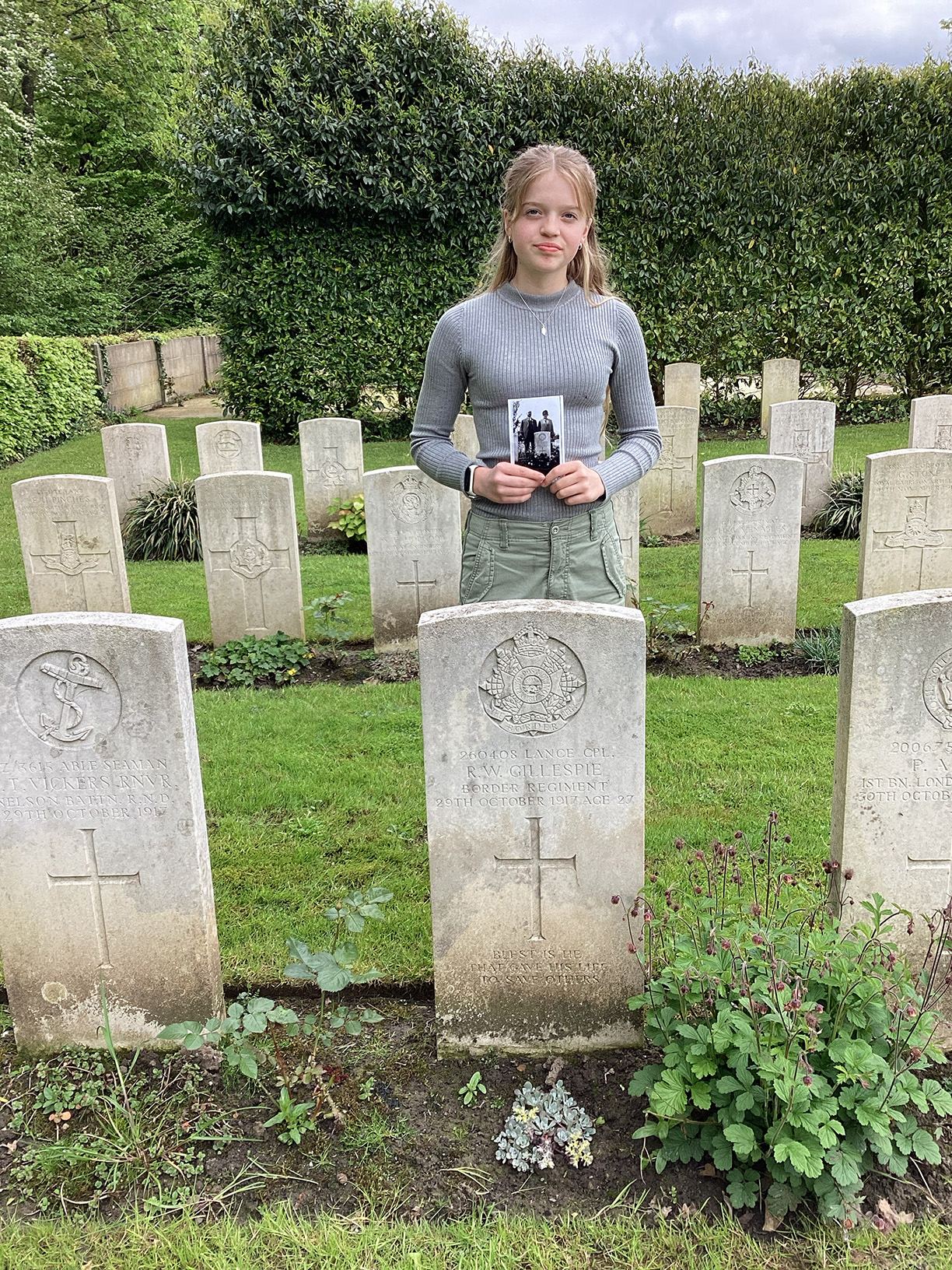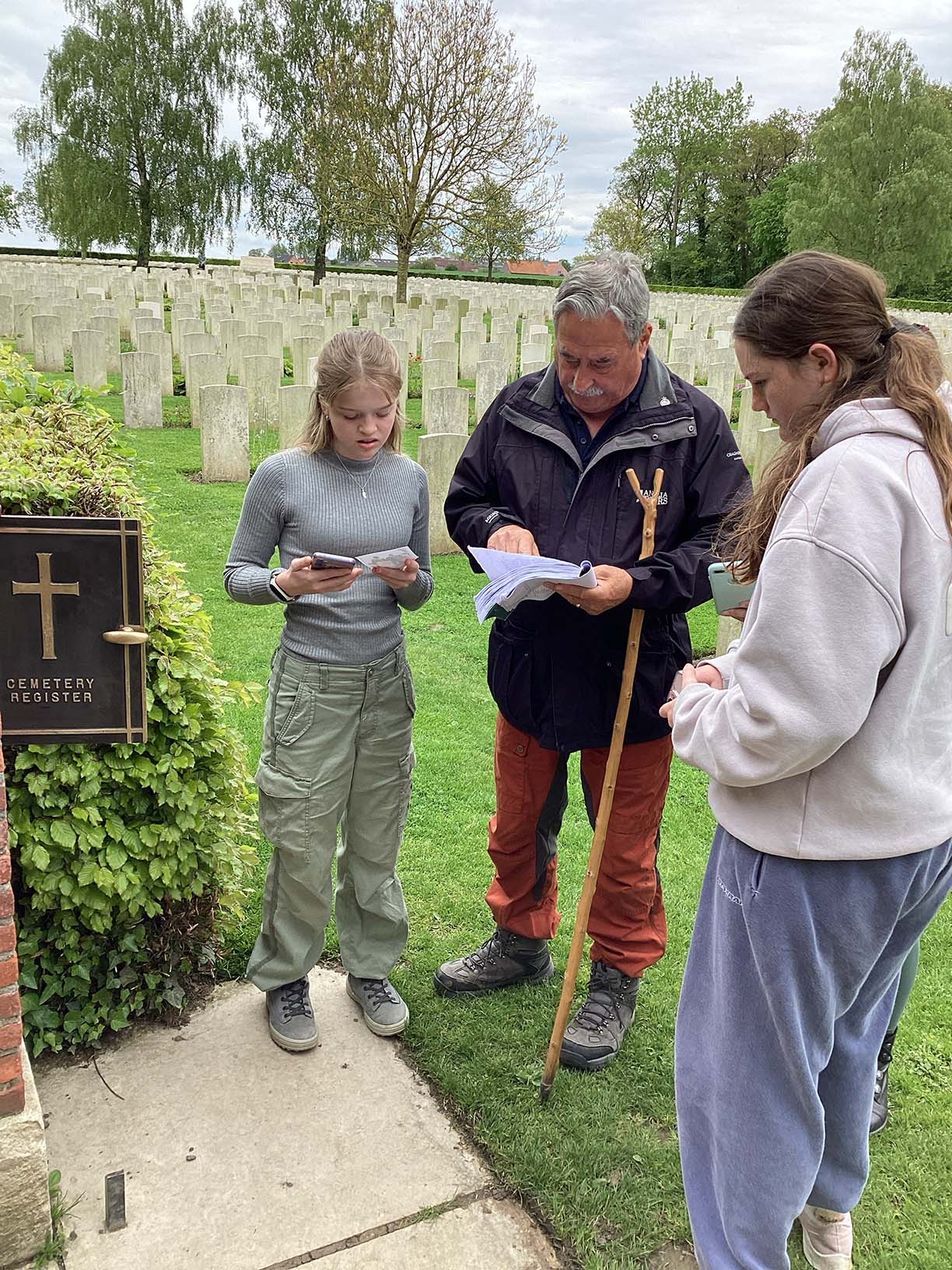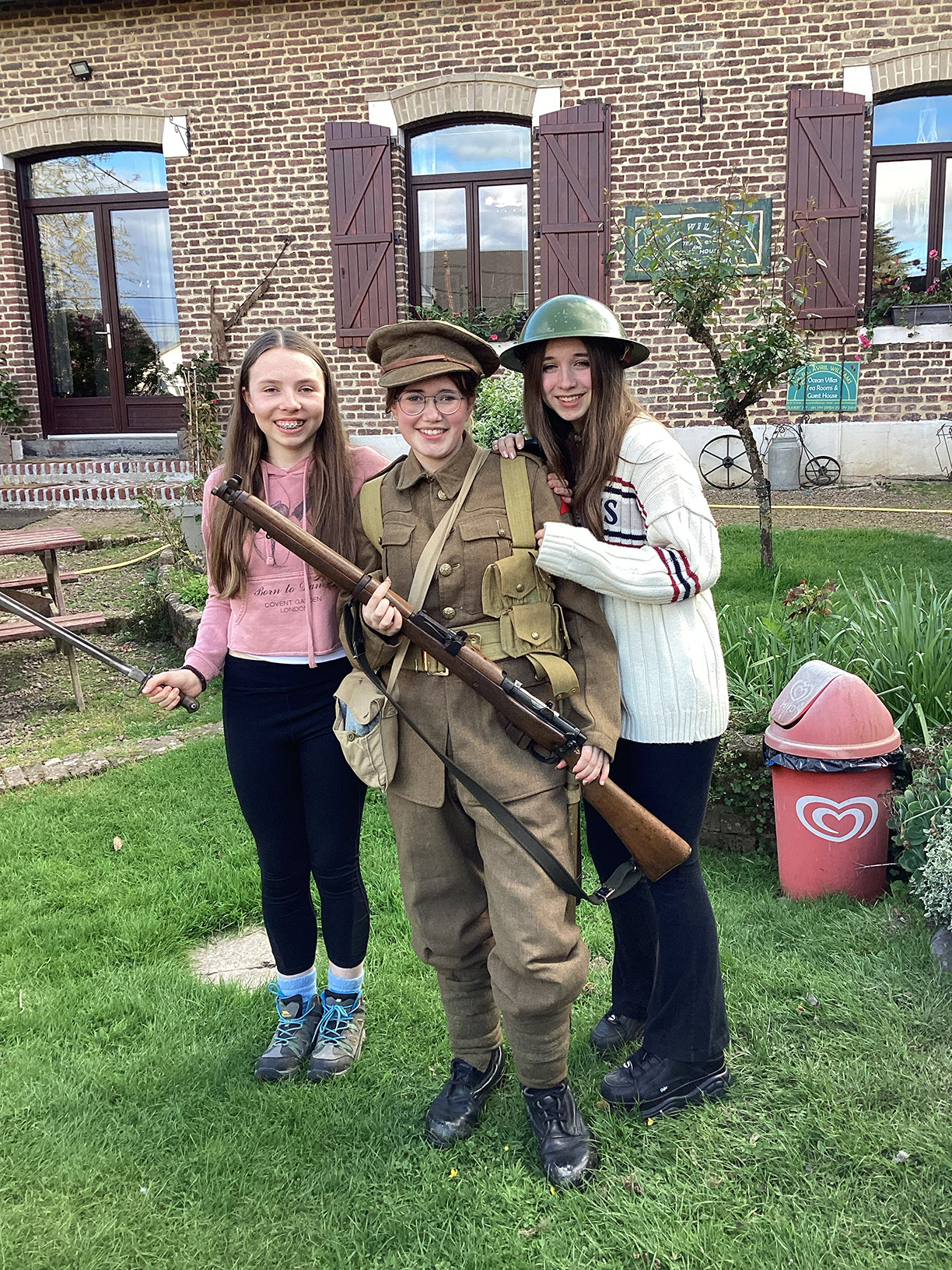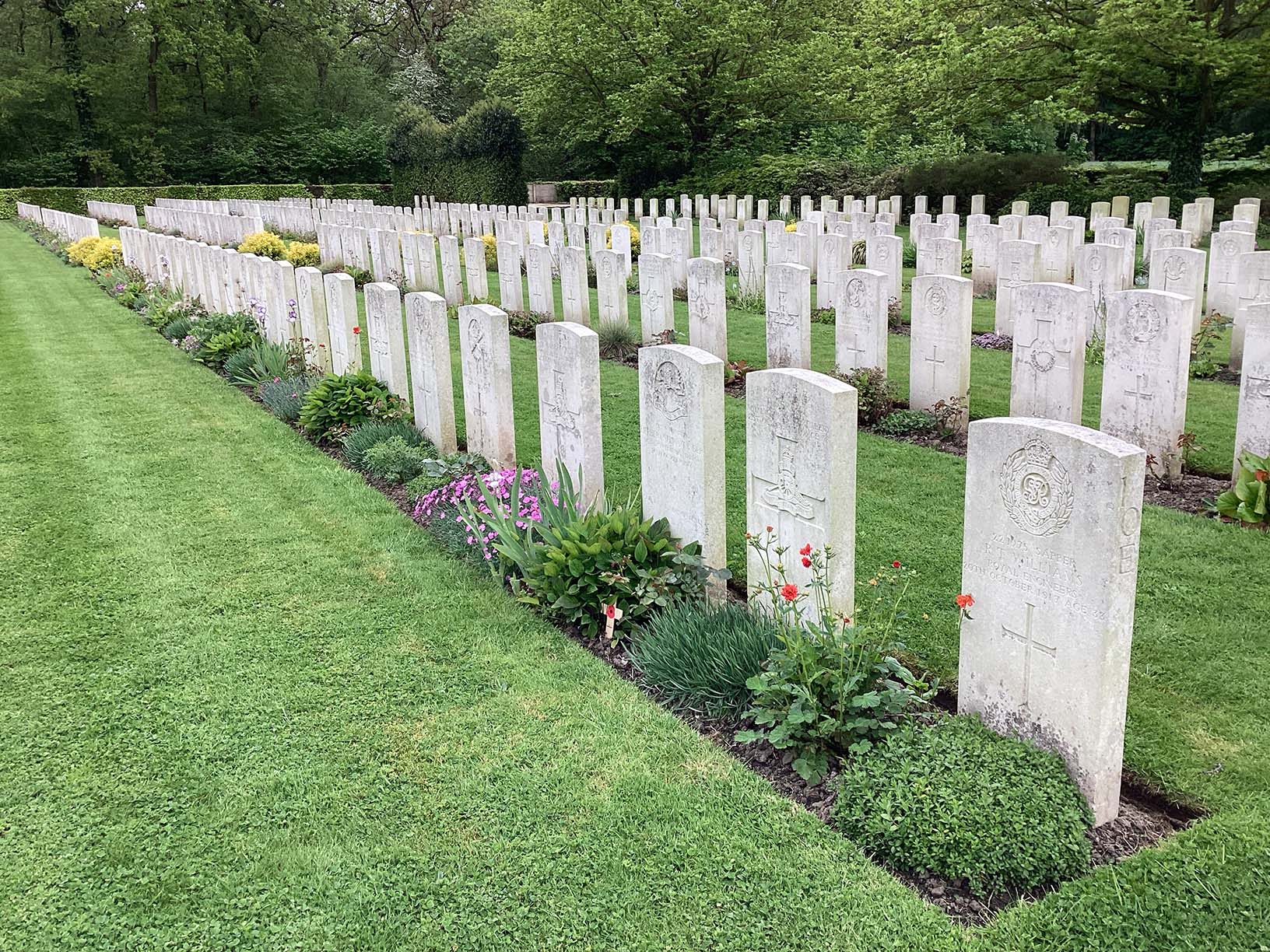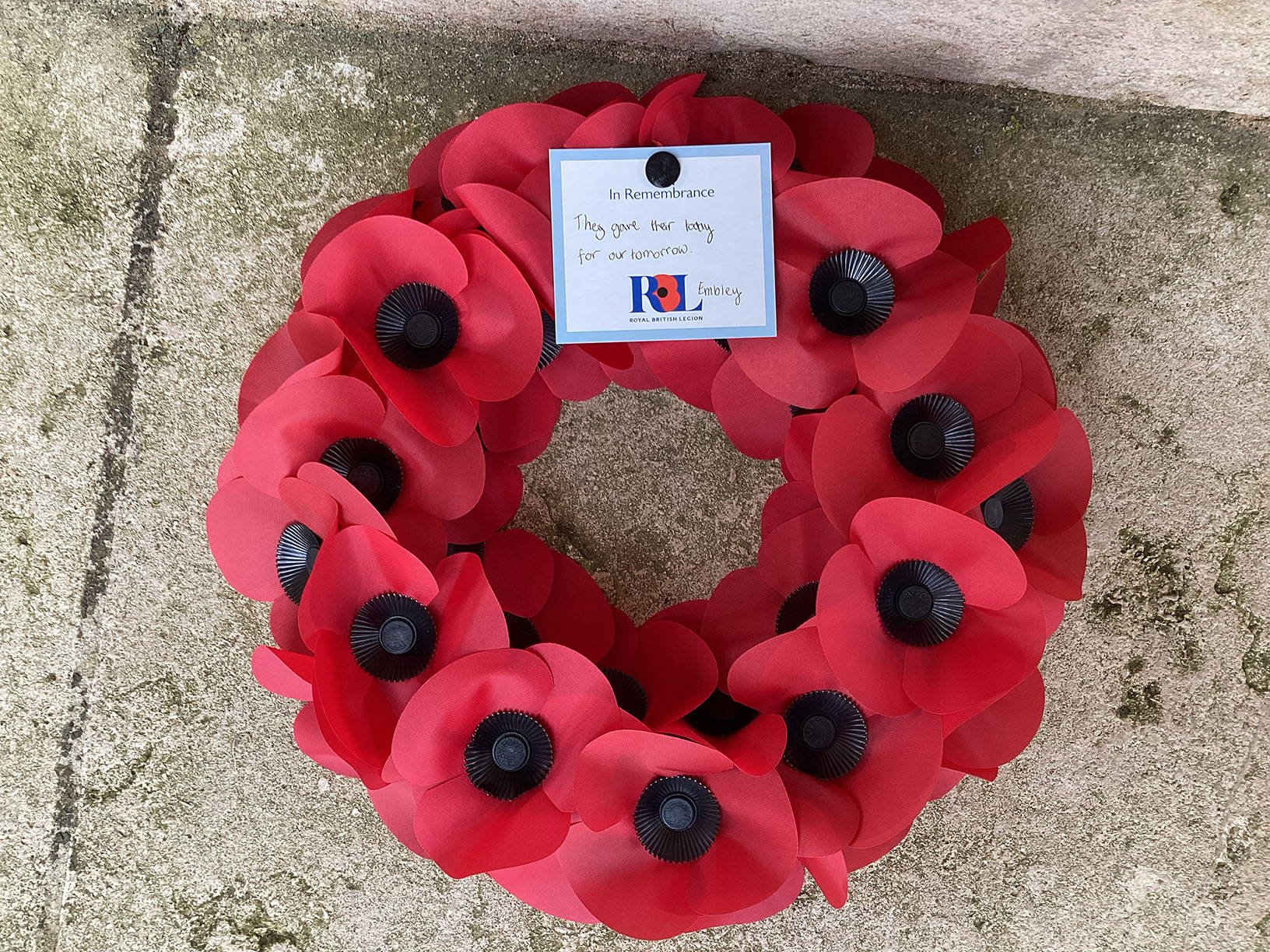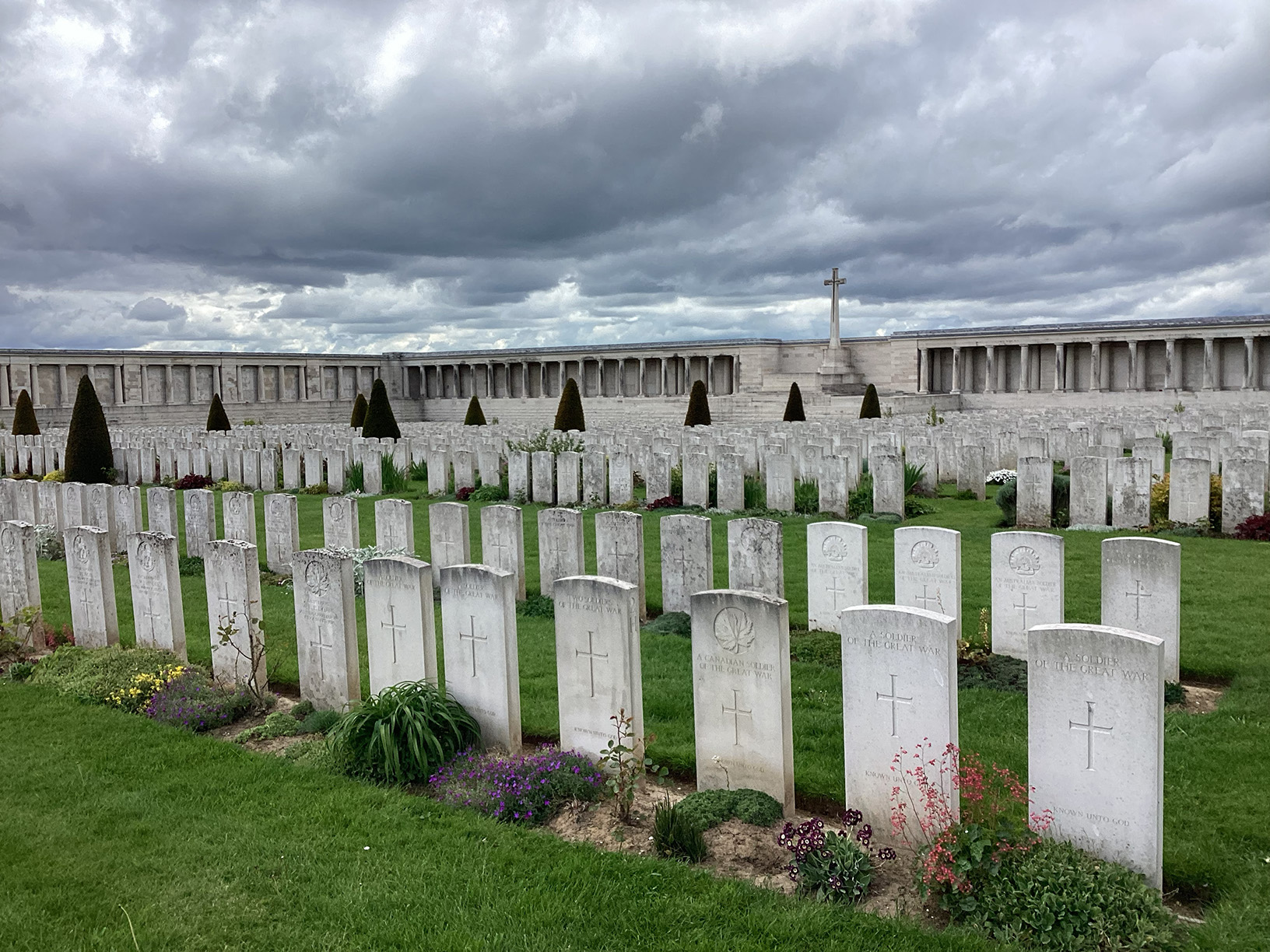Year 9 students visited the First World War Battlefields of Belgium and France.They learnt about the features of trench warfare and the British involvement in the Ypres salient in Belgium, visiting sites including Memorial Museum Passchendaele 1917, Langemarck German Cemetery, Essex Farm CWGC and Tyne Cot Cemetery. They also attended the Last Post ceremony at the Menin Gate in Ypres, a commemoration of the dead which has taken place every single day since 1928.
Day two saw pupils walk the battlefields of the Battle of the Somme, reliving 1 July 1916, the worst day in the history of the British Army. Students visited Sunken Lane, Hawthorn Ridge, Newfoundland Memorial Park, Mansel Copse, Lochnagar Crater and the Thiepval Memorial to the Missing.
They were guided by Alain Chissel and Ed Church of Anglia Tours, the original founders of the company back in 1998. Boasting 52 years of touring experience between them, they brought history to life with their expert knowledge and vivid stories. Embley students were also able to make pilgrimage visits to the resting place of relatives, with five students able to visit the graves of their family at sites across France and Belgium.
It was a poignant and powerful school trip which will live long in the memory. Four pupils share their reflections below:
Charlie: "Learning about the life of your ancestors, especially their time in the war, is an indescribable experience that everyone deserves to have. Having heard from my family trying yet failing to find him in the past it made me realise that I was probably the first person in history to pay respects to my great, great uncle: Major John Stanley Sharp, who is buried at Faubourg d’Amiens Cemetery in Arras. A total of 2,688 British and Commonwealth soldiers are buried at the site and 34,749 soldiers who were never found are commemorated on the memorial. It feels so beautiful to remember the lives of those who sacrificed themselves for their country, especially when you know you were privileged enough to find the man your family had tried to remember countless times in the past."
Clarisa: "I really enjoyed the three days I was in Belgium and France. We went to many cemeteries, trenches, a museum and monuments which all came from the fighting around Ypres and the Battle of the Somme, 1 July 1916 – 18 November 1916. I found it very interesting to see what life was like on both sides – Great Britain and France against Germany – and the outcome. An example of this is that the cemeteries of the two sides conflicted, this was shown by the British and the French cemeteries to be angelic and calming place to mourn while the German cemeteries seemed sad, and many people written on the same gravestone.
I found it very interesting to find out about my great, great uncle: Robert Wright Gillespie, who died on 29 October 1917. Going on this trip made me learn so much about him which I would have never seen or heard before. This could be even just the walk to his grave which was surrounded by trees which may have been their during the war or the beautiful plants which lay around the graves, also getting to see his grave and stand just where his parents stood on their own pilgrimage in 1920, or maybe finding out that he died from his wounds on the battlefield but took his last breath at the medical bunkers which most likely could be found right next to the graveyard. On the trip it was interesting to hear about other people’s stories and how they died bravely in battle and earning medals after their death."
"This weekend I had the privilege to take part in the harrowing, and yet hopeful experience of visiting many WWI battlefields and memorials. I think I speak for all of those who went that as we travelled from the Somme, to Langermarck German Cemetery, to Tyne Cot and especially our own memorial service, at which we laid a wreath at the Thiepval Memorial to the Missing; it was an incredibly poignant moment. I would like to thank everyone involved for the opportunity to take part in this amazing trip."
Ellie
"It was really interesting learning about and finding where my great-great-great uncle fought and died. His name was Albert Charles Mumby, known as ‘Charlie’, and he was killed on 1 July 1916, the first day of the Battle of the Somme. It was fascinating to be able to walk and learn about where he fought and then where he was shot and killed. I got to learn about how he was shot trying to carry a machine gun over no man’s land to capture a German trench at Hawthorn Ridge that the British had just blown up with a huge mine."
Matthew
